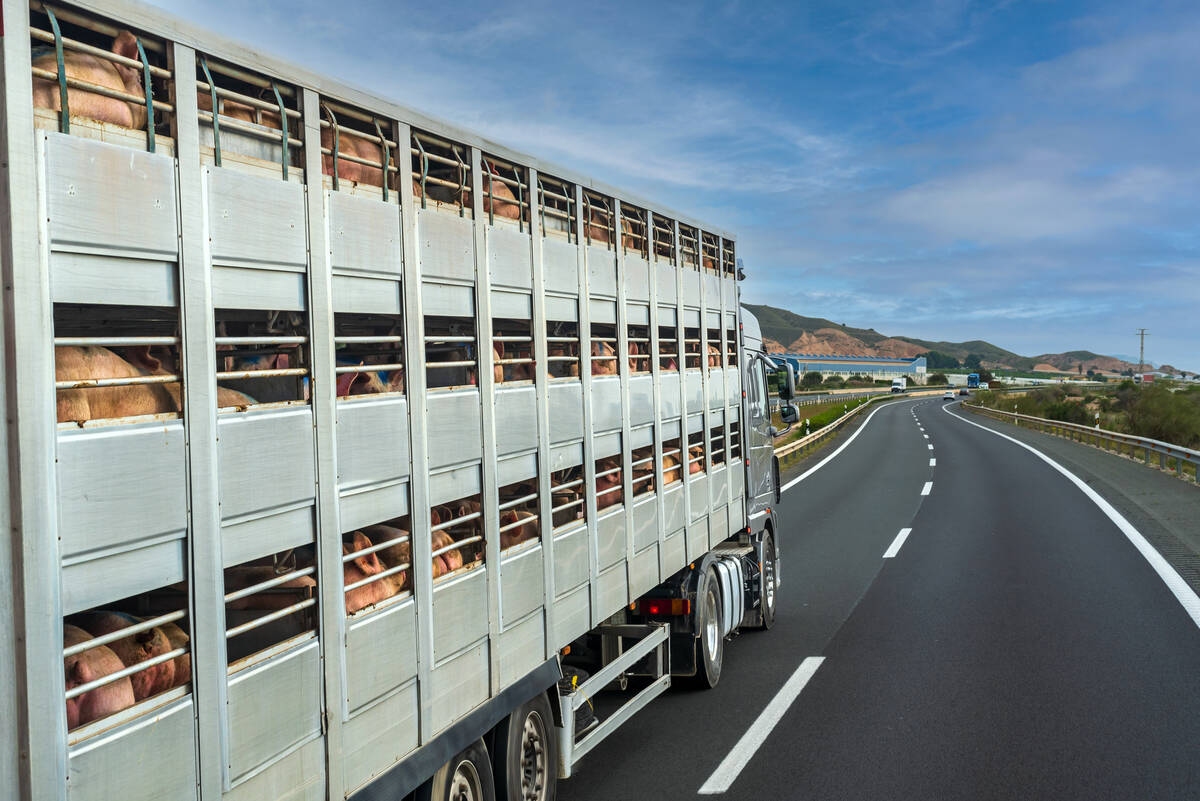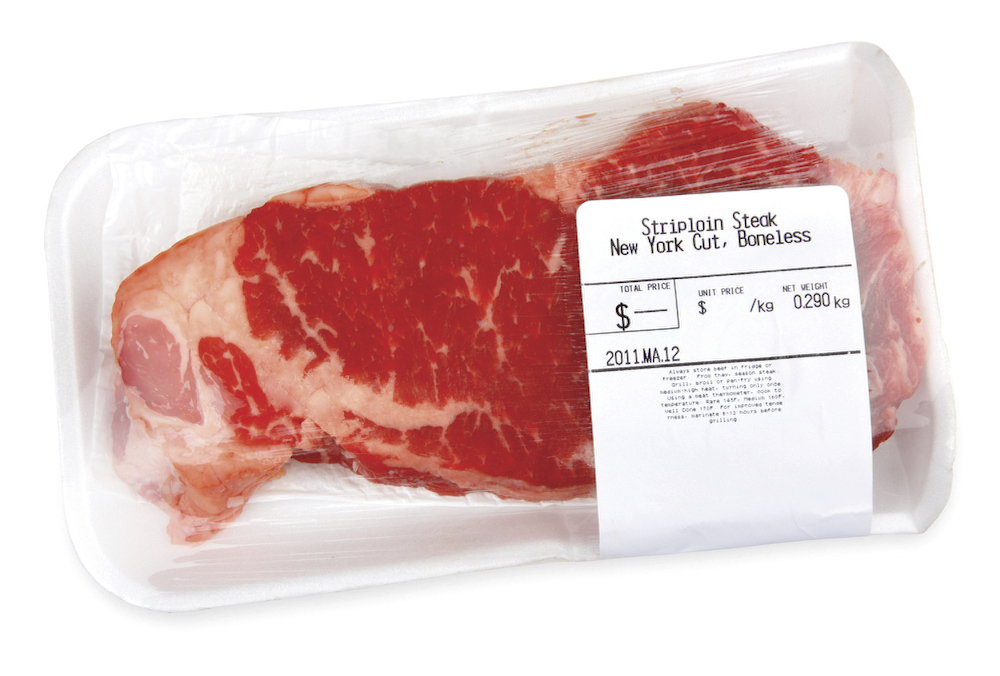“That characterization is misleading farmers and distracting farmers away from the real issues confronting cattle producers.”
– STEWART WELLS, NFU PRESIDENT
The National Farmers Union has reacted furiously to media suggestions it may be in bed with a longtime nemesis of the Canadian cattle industry.
Kevin Hursh, a Saskatchewan agricultural commentator, last week accused the NFU of being “cosy with the American beef protectionist group known as R-CALF.” The Manitoba Co-operator’s website the same week ran a story titled “NFU, R-CALF link arms against NAFTA.”
Read Also

Pig transport stress costs pork sector
Popular livestock trailer designs also increase pig stress during transportation, hitting at meat quality, animal welfare and farm profit, Agriculture and Agri-Food Canada researcher says
The reports stemmed from a recent two-day international conference in Billings, Mont., on the negative effects on North American farmers of both NAFTA and corporate concentration in the beef industry. Fourteen organizations from Canada, the U. S. and Mexico attended. The NFU and R-CALF were among them.
Stewart Wells, NFU president, called the media comments “an attack on the integrity of the National Farmers Union.”
“It’s not true,” Wells said in an interview. “The NFU has had no relationship with R-CALF in the past, we have no relationship with them now and we have no plans to have a relationship with them in the future.”
In fact, he said, NFU has “very strong disagreements (with R-CALF) that are ongoing.”
R-CALF is a grassroots group of U. S. ranchers and cattle producers who oppose imports of Canadian live cattle because of a potential BSE risk. The organization has also criticized the Canadian Wheat Board.
Canadian cattle producers blame R-CALF for contributing to protectionist sentiment in the U. S. against livestock imports. Nearly half of Canada’s combined beef and live cattle exports go to the U. S.
Following the Billings meeting, R-CALF issued a statement which appeared to suggest the NFU supported the American group.
“TOTALLY UNDERSTAND”
It quoted NFU board member Neil Peacock as saying, “We no longer view R-CALF as a threat because our cattle producers are facing the same challenges as independent U. S. cattle producers.”
Another NFU board member, Jan Slomp, was quoted as saying, “I can totally understand and defend R-CALF in public now. We need to be allies with R-CALF.”
Wells said the quotations were taken out of context. He said Peacock and Slomp were speaking about common themes which emerged during a session about corporate control in the North Amer ican beef-packing industry, not about general policy.
In a Feb. 17 daily commentary broadcast on Saskatchewan radio stations, Hursh noted NFU also issued a statement which denounced corporate con-cent ration but failed to include the comments of its members which R-CALF reported.
“Funny how the NFU wasn’t brave enough to say those things in its own news release,” Hursh said in his commentary, which was also posted on his website.
The Co-operator website story also remarked on the apparent commonality between NFU and R-CALF.
“Seen by many for years as a protectionist thorn in the side of Canadian cattle producers, the U. S. ranchers’ group R-CALF claims to have picked up new defenders in Canada’s National Farmers Union,” it read.
Wells called the comments misleading.
“That characterization is misleading farmers and distracting farmers away from the real issues confronting cattle producers.”
NFU recently released a study of the Canadian beef industry which claimed that corporate concentration and packer ownership of cattle depress prices to independent livestock producers.
“PUSH-BACK”
Hursh said he stood by his remarks and suggested NFU was doing damage control.
“I think the NFU is probably getting some push-back from people saying, ‘How can you be cosy with R-CALF?’ They’re saying many of the same things as far as being in disagreement with export trade,” he said in an interview.
Dave Bedard, the Co-operator’s web editor, said R-CALF seems to think it has a relationship with NFU, even if NFU doesn’t.
“(L)ooking at R-CALF’s statement coming out of the Billings meeting, not to mention the quotes it attributes to the NFU’s reps, R-CALF sure seems to believe the two groups made a connection, or at least had a meeting of minds, on issues such as NAFTA and packer concentration,” Bedard said.
“We know now a partnership involving R-CALF isn’t part of the NFU’s plan. Duly noted.”
Wells also objected to Hursh’s claims in his commentary that without trade the Canadian beef industry would shrink to half its present size.
According to the Beef Information Centre, Canada in 2007 exported 47 per cent of its total cattle and beef production. But on a net basis, subtracting imports, the figure was only 34 per cent.
A BIC official said the 34 per cent figure referred to product specifically produced in Canada, while the other figure considered exports from total supplies, which includes imports.
The Canadian Cattlemen’s Association, in a strongly worded Feb. 19 statement, blasted NFU, accusing it of “conspir(ing) with one of the most negative groups ever known to the Canadian cattle industry– R-CALF.
“NFU shares a lot in common with R-CALF– putting it bluntly, both fringe groups prey on the emotions of honest cattle producers, many in desperate situations,” it added.
CCA said NFU’s and R-CALF’s “discriminatory stance” against increased market opportunities for beef make them “official allies… along with other anti-prosperity, protectionist groups.”[email protected]


















